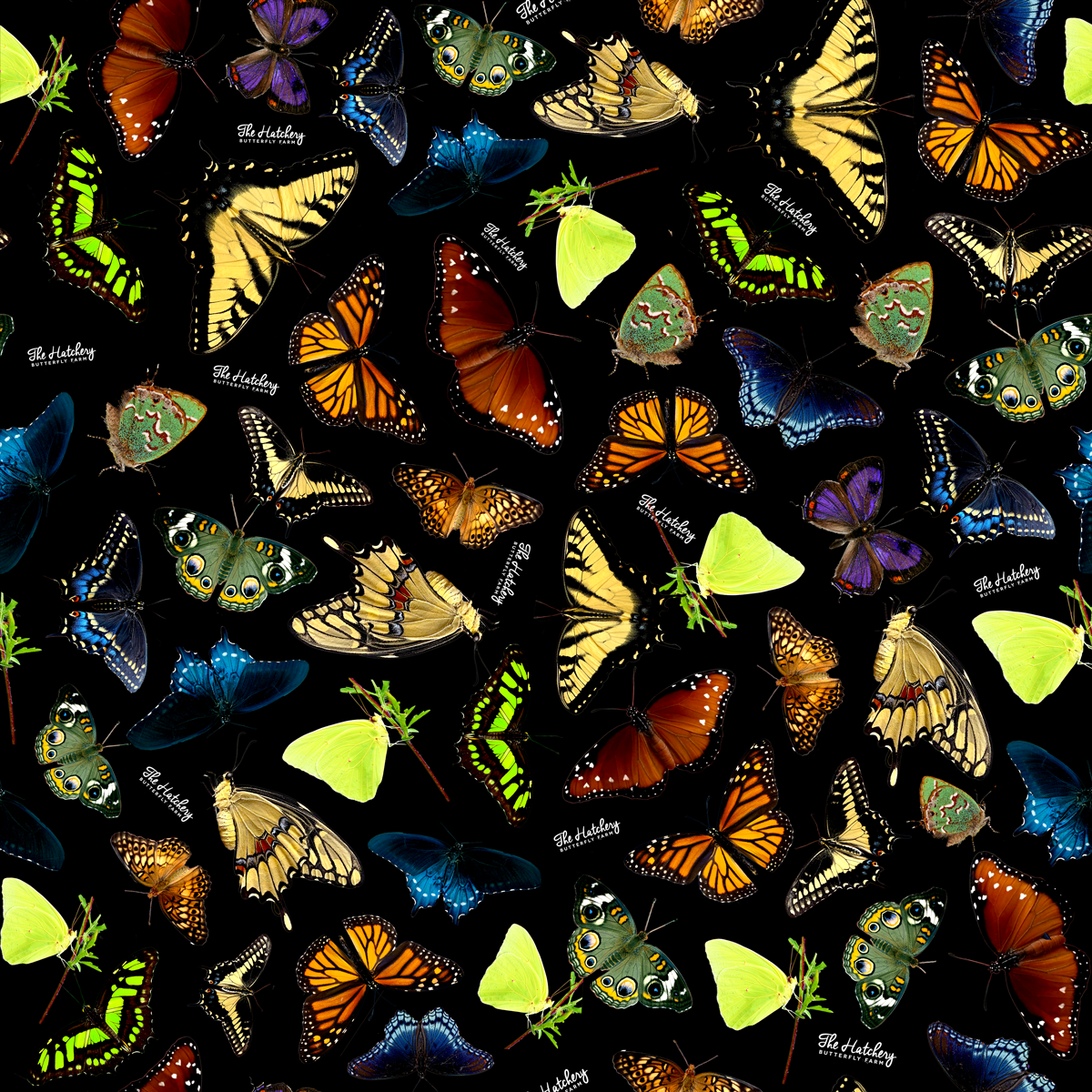
Apply to join our local garden network.
When you join, you will receive free larval host plants (while supplies last) with the stipulation that should we need more food to feed our caterpillars, we may contact you to harvest from your plant.
Take our quiz to see if you qualify!
About the Network
The Hatchery Butterfly Farm’s Wichita Garden Network aims to be a network of suburban, rural, and commercial gardens across the greater Wichita area that have been supplied with crucial larval host plants. Larval host plants are the secret to successful butterfly gardening — they are a necessity to sustain future generations of butterflies. Without larval host plants, we have no caterpillars. Without caterpillars, we have no butterflies!
Each garden in this network is an extension of The Hatchery Butterfly Farm and its mission. These gardens refrain from pesticide use and are a haven for our pollinators. Spreading host plants across a larger area helps to reduce the spread of disease in wild butterflies. This factor is particularly important in reducing OE (a debilitating protozoan parasite) in monarch butterflies.
When a garden is added to the network, it qualifies to receive free larval host plants with the stipulation that should The Hatchery need more food to feed our caterpillars, we may contact you to harvest from your plants.
Applicants must have an established garden area with access to regular irrigation, have prior gardening experience, and utilize a no-spray approach when it comes to managing garden pests (in other words— no pesticides). Host plant species will be selected according to each garden’s sun exposure, soil conditions, and moisture levels.
FAQs
(Coming soon)
-
[Information Coming Soon]
-
[Information Coming Soon]
-
[Information Coming Soon]
-
[Information Coming Soon]
-
[Information Coming Soon]
Potential Plants
Updated 2/11/2023
-

Common Milkweed
Common Milkweed (Asclepias syriaca) is a herbaceous perennial plant native to Kansas and much of North America. It is known for its distinctive clusters of small, fragrant flowers that bloom in shades of pink and purple. The plant's sap is milky and contains cardenolides, which are toxic to many insects and mammals but serve as a valuable source of protection for developing monarch butterfly larvae. Common Milkweed also provides nectar for a variety of pollinators and is an important species for wildlife habitat.
-

False Nettle
False Nettle (Boehmeria cylindrica) is a herbaceous perennial plant that is native to Kansas. It is called "False Nettle" due to its similarity in appearance to stinging nettle (Urtica dioica), but it lacks the stinging hairs. It prefers the light shade and moist, well drained, rich loamy soil.
False nettle is an important food source for red admirals, question mark butterflies, and comma butterflies.
"False nettle" by cricketsblog is licensed under CC BY 2.0.
-

Bronze Fennel
Bronze Fennel (Foeniculum vulgare) is a plant species in the carrot family, commonly grown as a herb or ornamental plant for its feathery, aromatic foliage and yellow-green flowers. This herb is native to the Mediterranean region and is a popular choice for butterfly gardens, as it attracts a variety of butterfly species, including the Black Swallowtail.
The larvae of the black swallowtail feed on plants in the carrot family, such as fennel, parsley, and dill, making bronze fennel a crucial food source for the survival of this butterfly species.
"Bronze Fennel" by John and Anni is licensed under CC BY-NC-SA 2.0.
-

Lovage
Lovage (Levisticum officinale) is a plant species in the carrot family native to the Mediterranean. It is widely cultivated for its leaves, stems, and seeds, which are all edible and have a flavor that is similar to celery — it is particularly tasty in soups and broths!
These perennial plants can grow quite large, and has the ability to support many black swallowtail larvae.
"Lovage" by Kathleen Farley is licensed under CC BY-NC-SA 2.0.
-

Rue
Rue (Ruta graveolens) is a woody perennial plant native to the Mediterranean region that belongs to the Rutaceae family. The plant produces small, yellow-green flowers and has blue-green leaves that are pinnately compound and have a strong, bitter aroma.
Rue is known to be toxic in large quantities, however it is also a host plant for the giant swallowtail butterfly (Papilio cresphontes) as well as the black swallowtail butterfly (Papilio polyxenes). Larvae of both species feed on the foliage and in doing so, they gain some protection from predators due to the plant's bitter and toxic properties.

